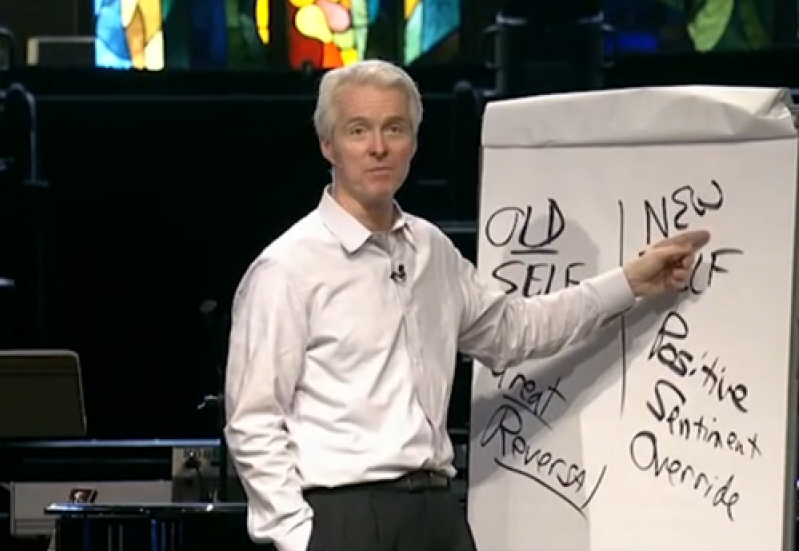
In his most recent sermon series, “Too Close for Comfort,” Pastor John Ortberg of Menlo Park Presbyterian Church (MPPC) gave a message about the mystery that is marriage, exploring relationships and genuine love in his sermon entitled “Dueling Desires.”
Pastor Ortberg teaches and speaks at gatherings worldwide, and has written several books on spiritual formation, including “Faith and Doubt” and “The Me I Want to Be.” One member of the Bay Area church says he appreciates Ortberg’s ability to “bring out the essence of the gospel in a humorous yet solemn way.” MPPC’s desire is to love God and His people, and to serve the world in which they live.
The pastor’s message was centered on Paul’s letter to the church at Ephesus, which exhorts the church and families to image Christ and His Bride. Pastor Ortberg first highlighted the fact that our culture has a misperception of the meaning of marriage – we are lead to believe that the union of man and wife exists to make us happy, rather than to help us grow in the Lord. “The purpose of marriage is not happiness,” said Ortberg, “happiness is a kind of byproduct that only comes when we’re pursuing something bigger, grander, nobler, more important, more eternal, than just my own feelings.”
Pastor Ortberg warned that those who enter into marriage with the idea that their spouse will fulfill or “complete” them will find heartbreak; becoming someone’s idol is a weight that mortals are not meant to bear - only God was meant to receive our worship, and only He can truly satisfy our souls. He pointed out that Paul says that it is “more important to be the right person than it is to find the right person” in Ephesians 5:18-33, and encouraged the singles in his congregation to try to become the kind of person that they are looking for in a marriage partner - reminding the congregation that the strength to change and to grow into Christ-likeness is only given by the Holy Spirit.
In this passage about Christ and His church, Paul says that believers ought to submit to one another. Pastor Ortberg pointed out that, much like in today’s culture, being in submission to others was thought of as weakness in their day and age, and not as a noble characteristic. He noted that “submission” does not mean letting people walk over you, or make decisions for you so that you don’t exercise judgment, but rather that it means to live in Christian community in a “self-giving, Spirit-powered, kingdom-trusting, humble love.” He said the same definition should apply to the way a wife submits to her husband as well.
Ortberg next tackled the role of a husband, found in verses 25-31 of Ephesians chapter 5. The task of loving a wife is based on appreciating the worth, delicacy, and value of one’s spouse, as opposed to lording authority over them. Said the pastor of his wife, “the mission of marriage is for me to look at the person that I’m married to and honestly see the ‘Old Self’ and honestly see the ‘New Self’ that God is calling her to, and help her to get from here to there by sacrificing myself, by noticing, by cheering her on, by being grateful, by serving, by encouraging, by admonishing.”
The union of husband and wife is one of God’s sanctifying tools, used to help one another grow up in Christ. “Marriage is to be a kind of school of life ... [where] the transformation of the human heart and soul and character can take place,” said Ortberg. We are sanctified as we put off the fallen and sinful ‘Old Self’ to put on the redeemed and Spirit-lead ‘New Self,’ as described in Ephesians 4:22-24.
“The way that a Spirit-filled marriage works is a tiny little picture of the way the Kingdom works - of the way God works, of the way of Jesus, of the triumph of self-giving love,” said the pastor. He plans to continue his series with next week’s sermon, “Getting Past Your Past.” The sermons, along with many others from MPPC, are available at the church’s website






